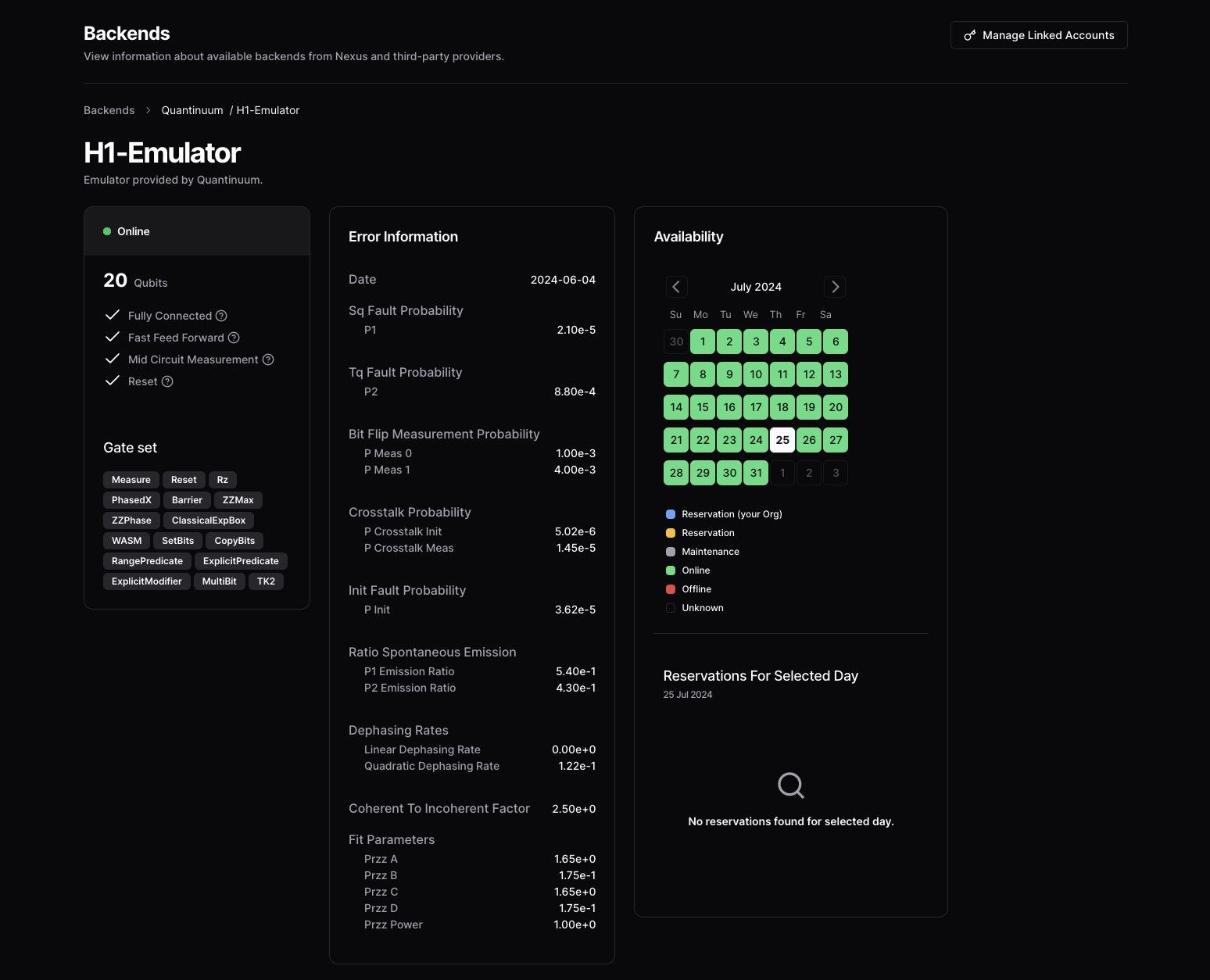Insider Brief
- Quantinuum announced the beta availability of its new platform, Quantinuum Nexus.
- The platform is designed to simplify quantum computing workflows by offering comprehensive full-stack support.
- It offers a range of features designed to streamline various tasks, such as installing necessary packages and libraries, and setting up storage solutions.
Quantinuum announced the beta availability of its new platform, Quantinuum Nexus, and is inviting quantum users to apply for beta access to test and help refine the platform, according to a recent blog post on Quantinuum’s official website and a corresponding product documentation page.
The platform is designed to simplify quantum computing workflows by offering comprehensive full-stack support, according to the post.
Common Challenges, Uncommon Technology
Quantinuum Nexus has been developed to address common challenges in quantum computing. The platform offers a range of features designed to streamline various tasks, such as installing necessary packages and libraries, and setting up storage solutions.

According to the blog post, “Nexus was developed by our in-house quantum experts to streamline the deployment of quantum algorithms. From tackling common tasks like installing packages and libraries to addressing pain points like setting up storage, Nexus seamlessly integrates thoughtful details to enhance user experience.”
Quantinuum Nexus Key Features
Resource Management: One of the primary features of Nexus is its ability to manage quantum computing tasks across different quantum backends, including Quantinuum’s H-Series hardware and other providers. This feature is intended to facilitate direct comparison of results and processes.
The team writes in post: “Nexus allows users to run, track, and manage resources across multiple quantum backends, making it easier for researchers to directly compare results and processes when using our H-Series hardware or other providers.”
Cloud-Hosted Tools: The platform includes a preconfigured JupyterHub environment and dedicated simulators, such as the Quantinuum H-Series emulator. This allows users to experiment with H-Series capabilities without needing direct hardware access.
Full-Stack Integration: Nexus is designed to work seamlessly with Quantinuum’s H-Series Quantum Processor, its software offerings like InQuanto™, and various H-Series emulators. It also supports multiple other hardware and simulation backends.
Data Management: Nexus provides comprehensive data management features, storing all necessary components to recreate experiments, including backend snapshots, settings, and variables. This centralized data management system ensures easy data sharing and storage.
“Nexus also stores everything you need to recreate your experiment in one place – meaning a full snapshot of the backend, the settings and variables you used, and more,” the team writes.
Administrative Tools: Administrators can use Nexus to control resources, manage user access, update usage quotas, and visualize usage trends. These tools are designed to help administrators efficiently manage quantum resources and ensure secure data sharing.
Quantinuum Nexus — By Quantum Experts for Quantum Experts
Quantinuum positions Nexus as a platform designed by quantum experts for quantum experts, with a focus on experiment management and collaboration. The platform provides extensive access to the H-Series emulator, aiming to reduce queue times and improve research efficiency. The integration of the InQuanto™ quantum chemistry package aims to streamline setup and data storage.
The platform is built around the end user, according to the blog. Quantinuum’s team writes that the platform is easy of use and offers comprehensive support: “Nexus provides a consistent API for working with a range of quantum devices & tools. This improves the experience of our end users, as scripts that work for one device can easily be ported to other devices with only a change to the config.”
Setting a New Standard in Quantum Platform-as-a-Service
Quantinuum’s release of Nexus aims to set a new standard in quantum Platform-as-a-Service offerings. By providing advanced tools and integration capabilities, Nexus could become a significant resource for quantum researchers and developers.
The Quantinuum team writes that they are optimistic about the platform’s potential, adding: “With Nexus, Quantinuum is setting a new standard in quantum Platform-as-a-Service providers, empowering users with cutting-edge tools and seamless integration for quantum computing advancements.”
For more details and to apply for beta access, interested users can visit Quantinuum’s website.
This is a very brief summary of Nexus, for a deeper dive, please review documentation here.















